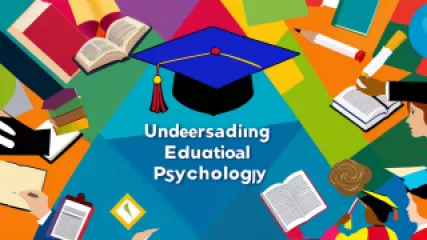Understanding Educational Psychology: A Step-by-Step Guide
Introduction
Education plays a crucial role in shaping individuals and societies. To enhance the learning experience and promote effective teaching strategies, educational psychology provides valuable insights into human development, cognition, and motivation. In this step-by-step guide, we will explore the fascinating field of educational psychology, understand its key concepts, and learn how it can be applied to promote student success. Whether you are an educator, a parent, or simply interested in understanding the psychology behind learning, this guide will provide you with a comprehensive understanding of educational psychology.
Section 1: What is Educational Psychology?
Educational psychology is the branch of psychology that focuses on studying how individuals learn and develop within educational settings. It seeks to understand the cognitive, emotional, and social factors that influence learning and academic achievement. By applying principles from psychology, educational psychologists aim to improve teaching methods, curriculum design, and overall educational experiences.
Educational psychologists conduct research, develop interventions, and offer support to educators, students, and parents. They are dedicated to enhancing the learning process, addressing individual differences, and creating inclusive educational environments.
The Role of Educational Psychologists
Educational psychologists play a vital role in various educational settings, including schools, colleges, and universities. Their responsibilities include:
- Conducting assessments to identify learning difficulties and disabilities
- Designing and implementing interventions to support students with special needs
- Collaborating with teachers to develop effective teaching strategies
- Providing counseling and guidance services to students
- Conducting research to contribute to the field of educational psychology
The Benefits of Understanding Educational Psychology
Understanding educational psychology can have numerous benefits for educators, students, and parents alike. Some of the key advantages include:
- Enhanced teaching strategies: Educators can apply evidence-based practices to optimize student learning.
- Improved academic performance: Students can develop effective study habits, motivation, and self-regulation skills.
- Support for special needs: Educational psychologists provide valuable support and interventions for students with learning disabilities or special needs.
- Positive learning environments: By understanding the social and emotional aspects of learning, educators can create inclusive and supportive classrooms.
- Effective parent involvement: Parents can gain insight into their child's learning process and provide appropriate support at home.
Section 2: Key Concepts in Educational Psychology
Educational psychology encompasses a wide range of concepts that contribute to our understanding of the learning process. Let's explore some of the key concepts:
1. Cognitive Development
Cognitive development refers to how individuals acquire, organize, and use knowledge. It involves processes such as perception, attention, memory, problem-solving, and critical thinking. Understanding cognitive development helps educators tailor instruction to meet students' developmental needs.
2. Learning Theories
Learning theories provide frameworks for understanding how learning occurs. They include behaviorism, cognitivism, constructivism, and social learning theory. Each theory offers unique insights into the learning process and informs instructional practices.
3. Motivation and Engagement
Motivation plays a crucial role in learning. Educational psychologists study various motivational theories, such as intrinsic and extrinsic motivation, self-efficacy, and goal-setting. By understanding these concepts, educators can foster students' motivation and engagement in the learning process.
4. Individual Differences
Every student is unique, with different abilities, strengths, and challenges. Educational psychologists explore individual differences in areas such as intelligence, learning styles, and cultural backgrounds. Recognizing and addressing these differences helps educators provide personalized instruction and support.
5. Assessment and Evaluation
Assessment and evaluation provide valuable insights into students' progress and understanding. Educational psychologists develop assessment tools and techniques to measure learning outcomes effectively. They also analyze assessment data to inform instructional decision-making.
Section 3: Applying Educational Psychology
Educational psychology has practical applications that can positively impact teaching and learning. Let's explore some ways it can be applied:
1. Online Support for Educational Psychology
In today's digital age, online support for educational psychology has become increasingly accessible. Online platforms offer resources, courses, and communities where educators, students, and parents can access information and guidance related to educational psychology. These platforms provide opportunities for professional development, collaboration, and support.
2. Coaching Services for Educational Psychology
Coaching services for educational psychology provide personalized support and guidance to educators and students. Coaches with expertise in educational psychology can assist in developing effective teaching strategies, enhancing study skills, and promoting student motivation. Through coaching, individuals can apply educational psychology principles in practical ways.
3. Educational Psychology Therapy Programs
Educational psychology therapy programs focus on providing therapeutic interventions for students with emotional or behavioral difficulties that impact their learning. These programs aim to address underlying psychological factors and create a supportive environment for students to thrive academically and emotionally.
4. Educational Psychology Therapy Sessions
Educational psychology therapy sessions involve one-on-one or group counseling sessions with a trained educational psychologist. These sessions aim to address emotional, social, or behavioral challenges that may hinder a student's academic progress. Through therapy, students can develop coping strategies, improve self-esteem, and enhance their overall well-being.
Section 4: Conclusion
Educational psychology plays a critical role in understanding the complexities of learning and development. By applying principles from this field, educators can create inclusive classrooms, optimize teaching strategies, and foster student success. Additionally, parents and students can benefit from understanding educational psychology by gaining insights into effective study habits, motivation, and individual differences. As we continue to explore and apply the principles of educational psychology, we contribute to the growth and enhancement of education for the betterment of individuals and society as a whole.






